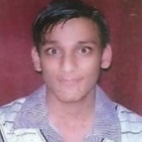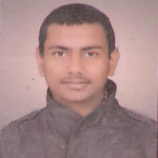International Journal of Intelligent Systems and Applications (IJISA)
IJISA Vol. 6, No. 1, 8 Dec. 2013
Cover page and Table of Contents: PDF (size: 1780KB)
Minutiae Fusion Based Framework for Thumbprint Identification of Identical Twins
Full Text (PDF, 1780KB), PP.84-101
Views: 0 Downloads: 0
Author(s)
Index Terms
Minutiae Coordinates, Orientation Angles, Minutiae Union Set, Identical Twins, and Thumbprint Patterns
Abstract
Identical twins identification is a challenging task because they share the same DNA sequence. This research paper presents minutiae coordinates and orientation angles fusion based technique for thumbprint identification of identical twins. Six different thumbprint images of identical twins were taken at a fixed time interval using H3 T&A terminal. The minutiae coordinates and orientation angles of these thumbprints were fused to form a union set. The union set values were stored in the smartcard memory for further identification.
The minutiae coordinates and orientation angles of a thumbprint of the person to be identified are computed and fused together for online identification. The fused minutiae are compared with the minutiae union set values stored in the smartcard memory for identity verification. The proposed method was tested on a self generated identical twin dataset and 50 identical twins of standard FVC04 and FVC06 datasets. We observed in experiments that the proposed method is accurately differentiating the identical twins of self generated and FVC datasets.
Cite This Paper
Kamta Nath Mishra, P. C. Srivastava, Anupam Agrawal, Rishu Garg, Ankur Singh, "Minutiae Fusion Based Framework for Thumbprint Identification of Identical Twins", International Journal of Intelligent Systems and Applications(IJISA), vol.6, no.1, pp.84-101, 2014. DOI:10.5815/ijisa.2014.01.10
Reference
[1]Bazan J.,Skowron A. , “Perception Based Rough Set Tools in Behavioural Pattern Identification”, Fundamenta Informaticae – New Frontiers in Scientific Discovery, Vol. 75, No. 1-4, pp. 27-47, 2007.
[2]Bennet D.,Perumal S.A., “Fingerprint: DWT, SVD Based Enhancement and Significant Contrast for Ridges and Valleys Using Fuzzy Measures”, Journal of Computer Science And Engineering, Vol. 6, No. 1, pp- 28-32, 2011.
[3]Chain T. P, Yau Wei-Yun, and Jiang X, “Token-Based Fingerprint Authentication”, Recent Patents on Computer Science, Vol. 2, pp. 50-58, 2009.
[4]Chen X., Tian J., Yang X., and Zhang Y., “An Algorithm for Distorted Fingerprint Matching Based on Local Triangle Feature Set”, IEEE Transactions on information forensics and security, Vol. 1 , No. 2, pp. 169-177, 2006.
[5]Chen X., Tian T., and Yang X., “A New Algorithm for Distorted Fingerprints Matching Based on Normalized Fuzzy Similarity Measure”, IEEE Transactions on image processing, Vol. 15 No. 3, pp. 767-776, 2006.
[6]Han Y, Ryu C, Moon J, Kim H, and Choi H., “A study on evaluating the uniqueness of fingerprints using statistical analysis”, Information Security and Cryptology – ICISC04, pp. 467 – 477, 2004.
[7]Homem N., and Carvalho J.P., “Mobile Phone User Identification with Fuzzy Fingerprints”, Advances in Intelligent System Research, Vol. 1, No. 1, pp. 860-867, 2011.
[8]http://bias.csr.unibo.it/fvc2004/ Last Accessed On: June 2012.
[9]http://bias.csr.unibo.it/fvc2006/ Last Accessed On: June 2012.
[10]Iancu, Constantinescu N., and Colhon M., “Fingerprints identification using a Fuzzy Logic System”, Int. J. of computers Communications & control, Vol. 5, No. 4, pp. 525-531, 2010.
[11]Indi S.T., and Raut D.S., “Biometric Feature Based Person Unique Identification System”, International Journal of Computer Application, Vol. 51, No. 13, pp. 7-12, 2012.
[12]Jain A.K., Ross A., and Prabhakar S. “An Introduction to Biometric Recognition”, IEEE Transaction on Circuit and System for video technology, Vol. 14, No. 1, pp. 4-20, 2004.
[13]Jain A.K., Prabhakar S., and Pankanti S., “On the Similarity of identical twin fingerprint”, Pattern Recognition, Vol. 35, pp. 2653-2663, 2002.
[14]Jain A. K., Feng J., and Nandakumar K., “Fingerprint Matching”, Computer, Vol. 43, No. 2, pp. 36-44, 2010.
[15]Josphineleela R., and Ramakrishnan M., “An Efficient Automatic Attendance System Using Fingerprint Reconstruction Technique”, International Journal of Computer Science and Information Security, Vol. 10, No. 3, pp. 1-6, 2012.
[16]Jung D.W., and Park R.H. “Robust Fingerprint Identification Based on Hybrid Pattern Recognition Methods”, A Book of World Scientific, pp. 1-26, 2001. Available Online On: www.worlscientific.com/worldscibook/10.1142/4871
[17]Krishneswari K., and Arumugam S., ”Multimodal Biometrics using Feature Fusion”, Journal of Computer Science, Vol. 8, No. 3, pp. 431-435, 2012.
[18]Kondekar M.H, Kulkarni U.V., and Krishna Kanth B.B.M., “Extended Fuzzy Hyperline Segment Neural Network for Fingerprint Recognition”, International Journal of Biometrics and Bioinformatics, Vol. 5, No. 3, pp. 162-171, 2011.
[19]Kulkarni J.V., Patil B.D., and Holambe R.S., “Orientation Feature for fingerprint matching “, Pattern Recognition, Vol. 39, pp. 1551-1554, 2006.
[20]Leung M., Engeler W., and Frank P. , “Fingerprint Image Processing Using Neural Network”, Computer and comm. System , IEE TENCON 90, pp. 582-586, 1990.
[21]Meva T.D., Kumbharana C.K., and Kothari A.D., “The Study of Adoption of Neural Network Approach in Fingerprint Recognition”, International Journal of Computer Application, Vol. 40, No. 11, pp. 8-11, 2012.
[22]Mishra K. N., Srivastava P. C., Agrawal Anupam, Tripathi V., and Gupta V.,” A Framework Towards Using Eigen Iris, Minutia Thumb and DNA Sequence Features For Personal Identification”, International Journal of Information Acquisition, Vol. 8, No. 3, pp. 197-225, 2011.
[23]Mishra K. N., Srivastava P. C., Agrawal Anupam, Tripathi V., and Garg R., “Minutiae Distances and Orientation Fields Based Thumbprint Identification of Identical Twins”, International Journal of Image Graphics and Signal Processing, Vol. 5, No. 3, pp. 51-59, 2013.
[24]Mishra K. N., Srivastava P. C., Agrawal Anupam, Ojha P., and Garg R., “Fingerprints, Iris and DNA Features Based Multimodal Systems: A Review”, International Journal of Information Technology and Computer Science, Vol. 5, No. 2, pp. 88-111, 2013.
[25]Mudholkar S.S., Shende P.M., and Sarode M., “Biometrics Authentication Technique For Intrusion Detection System Using Fingerprint Recognition”, International Journal of Computer Science, Engineering and Information Technology, Vol. 2, No. 1, PP. 57-65, February 2012.
[26]Patil D.S., and Patil S.A., “Fingerprint recognition using minutia matching”, World Journal of Science and Technology, Vol. 2, No. 4, pp. 178-181, 2012.
[27]Srihari Sargur N., Srinivasan H., and Fang G., “Discriminability of Fingerprints of Twins”, Journal of Forensic Identification, Vol. 58, No. 1, pp. 109-127, 2008.
[28]Sun Zhenan, Paulino A., Feng J., and Chai Z. “A Study of Multi-biometric Traits of Identical Twins”, Proc of SPIE, Biometric Technology for Human Identification VII, pp. 7667 – 27, 2010.
[29]Tan X, and Bhanu B., “Fingerprint matching by genetic algorithms”, Pattern Recognition, Vol. 39, pp. 465-477, 2006.
[30]Tao X., Chen X., Yang X., and Tian J., “Fingerprint Identification with Identical Twin Fingerprints”, PLoS One, Vol. 7, No. 4, e35704, (doi:10.1371/journal.pone.0035704), 2012.
[31]Vatsa M., Singh R., Noore A., and Singh S.K., “Quality Induced Fingerprint Identification Using Extended Feature Set”, In Proceedings of IEEE Conference on Biometrics: Theory, Applications and Systems, pp. 52-61, 2008.
[32]Velamuri R., and Thompson S.G., “Fingerprint recognition Using Fuzzy Inference Techniques”, A report submitted by University of Texas, pp. 1-9, 2006.




